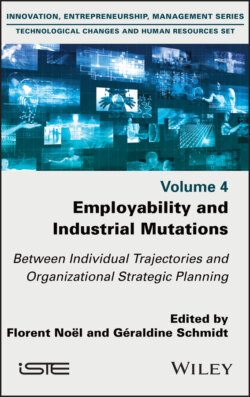Читать книгу Employability and Industrial Mutations - Группа авторов - Страница 10
Оглавление
Foreword by IPSI
1980s… 1990s… At the trade union level, the word employability was not acceptable. It was seen as a tool for the exclusive use of employers to organize terminations and support outplacement.
Today, the ability to be employed has become one of the major challenges for companies, so that employees can adapt to the internal and external changes taking place. The exponential digitalization of all work relations is one of the concrete illustrations of these changes.
The ability of human beings to adapt to changes in their work is, more than ever, a key element in the success of these transformations. However, sociological constraints remain and the initial suspicion is sometimes still present. Although significant efforts have been made in training to “nurture” and develop skills, this is not enough.
The initial mistrust will only disappear completely if firms help to set up work organizations that promote and develop the ability to be employed. This requires employers accepting, internally, a different distribution of powers, in order to free the initiative and the responsibility of the employees.
It is at the price of this “revolution” that the ability to be employed will gain the support of all the actors in the company. If the work organization parameter becomes a central element of the management method, adaptation to change could be more natural, because it is permanent.
Today, it is not enough to have good ideas. They must be shared. The conditions for employability must therefore be worked out in concert with the employees themselves and their representatives, through a permanent, high-quality social dialogue, which requires a number of prerequisites (trust, carrying out a shared inventory before any negotiations, etc.).
This joint work on employability in periods of major change will make the adaptation actions of companies more legitimate and acceptable, including in the event of restructuring: “I will be more confident about my future if I know that I have the ability to adapt to a new job”.
Box 1. IPSI (Institution pour le progrès social dans l’industrie) in a nutshell
The Institution pour le progrès social dans l’industrie (IPSI) is a joint association whose founding members are the Groupement des entreprises sidérurgiques et métallurgiques (GESiM), on the one hand, and the trade unions CFTC, CFDT, CGT-FO and CFE-CGC, on the other hand.
The association’s main objectives are as follows:
– to contribute to the improvement of social, professional and strategic dialogues in companies;
– to promote a management by competencies, a management that is responsible, valorizing and a source of performance in the long-term;
– to contribute to all innovations and experiments in social matters;
– in a more global way, to take an interest in all subjects in the field of human resources (work organization, skills management, training, etc.).
Its operation is based on the exchange of experiences and joint sharing between HRDs, DAS and federal representatives of trade unions.
IPSI, in the wake of Think Tanks, also has a more operational vocation as a Do Tank: support, observation and capitalization of social experiments.
The company, as a cell of society, would thus have a better capacity to adapt to the evolution of its environment thanks to employees who, in the course of their duties, have permanently developed their own capacity to be employed in a context of constant change.
Xavier LE COQ
President of IPSI
President of the CFE-CGC Sidérurgie French National Iron and Steel Union
Jacques LAUVERGNE
Vice-President of IPSI, President of GESiM
Emmanuelle CHAPELIER
General Delegate of IPSI
November 2021
